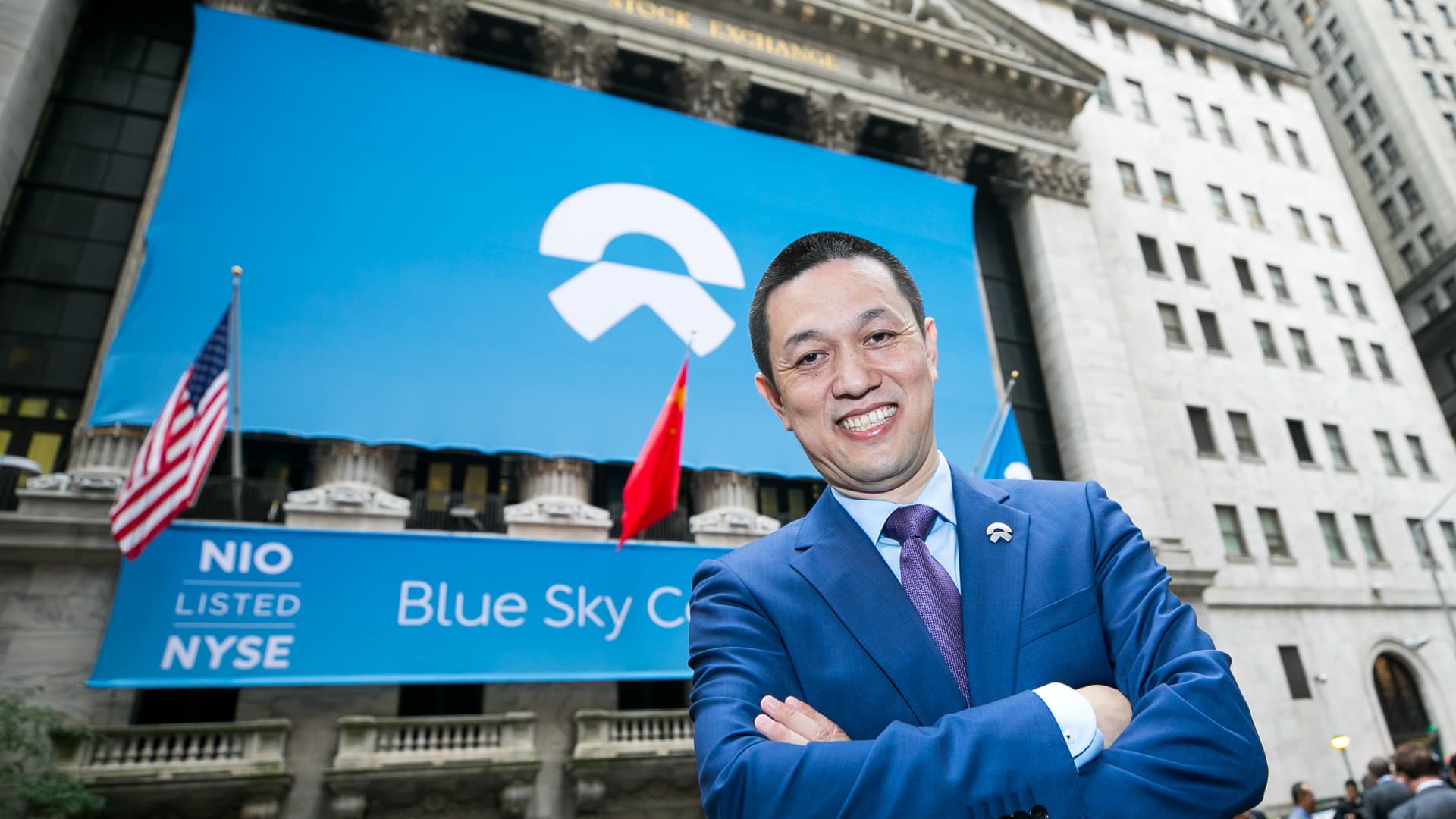BEIJING — Chinese electric car start-ups Nio and Xpeng are turning to a lower-priced segment of the market with plans to release newly branded cars this year.
Nio’s first such mass market car will be an SUV cheaper than Tesla‘s Model Y, CEO William Li told CNBC’s Eunice Yoon on Thursday. The Tesla SUV starts at 249,900 yuan ($35,197) in China.
Like many early entrants to China’s electric car market, U.S.-listed Nio targeted the premium market when it launched about a decade ago. Its vehicles can cost around $50,000 or more, offering buyers additional services such as Nio clubhouses and a network of battery charging and swapping stations.
Nio and Xpeng’s plans to launch mass market brands put the companies in more direct competition with local rival BYD and German carmaker Volkswagen.
The new cars come amid an intense price war in China’s new energy car market, which includes battery-only and hybrid-powered vehicles. Such cars now account for well over 40% of new passenger cars sold in the country.
Li said he doesn’t expect the main brand to significantly adjust prices, although he expects price volatility in the market to persist for a while.
Nio is planning a mid-May launch for its new brand, called Onvo or “Le Dao” in Chinese, a name the company says is meant to reflect families — the target consumer segment — having a happy time together.
Xpeng, which sells its cars in a slightly lower price range than Nio, plans to launch its new sub-brand Mona in the next two or three months, Vice Chairman and Co-President Brian Gu told CNBC on Thursday.
Gu said the new cars would sell for less than 150,000 yuan ($20,700), which is lower than the price range Nio is targeting. Last summer, Xpeng said it would develop a new mass market brand for that price range through a strategic partnership with ride-hailing app operator Didi.
“The reason we are ready to tackle that segment is we believe that with scale, with technology and with cost control, we are able to bring the differentiate[d] technology to the mass market,” Gu said, noting that in the past, only the premium market could enjoy higher-end tech.
Xpeng has made its driver-assist software one of its selling points in China. Tesla’s comparable full self drive software isn’t yet available in the country.
Gu said in a briefing with reporters that Xpeng would differentiate the tech that’s available for the mass market brand, versus the existing one.
He also pointed out that there are at least a dozen brands competing in the premium segment, while only two or three brands currently account for about 80% of the mass market in China.
Tesla’s Model Y is the best-selling purely battery-powered electric SUV in China priced below 250,000 yuan, according to Autohome data for the first quarter of the year.
Despite undercutting the Model Y, Li said the new brand’s first car will cost around $30,000 (213,000 yuan) — not as low as BYD.
Chinese battery and electric car giant BYD has found most of its success in the lower end of the mass market. In the last year, it has launched premium and luxury cars under new brands, giving the company product offerings from below 100,000 yuan to more than 1 million yuan.
Among several new cars planned for this year, BYD said Thursday it is launching a new hybrid-powered car in the second quarter with a 120,000 yuan to 150,000 yuan price range.
